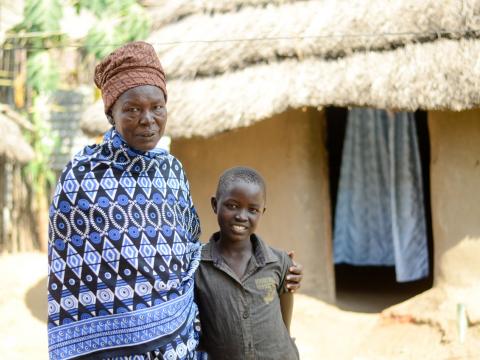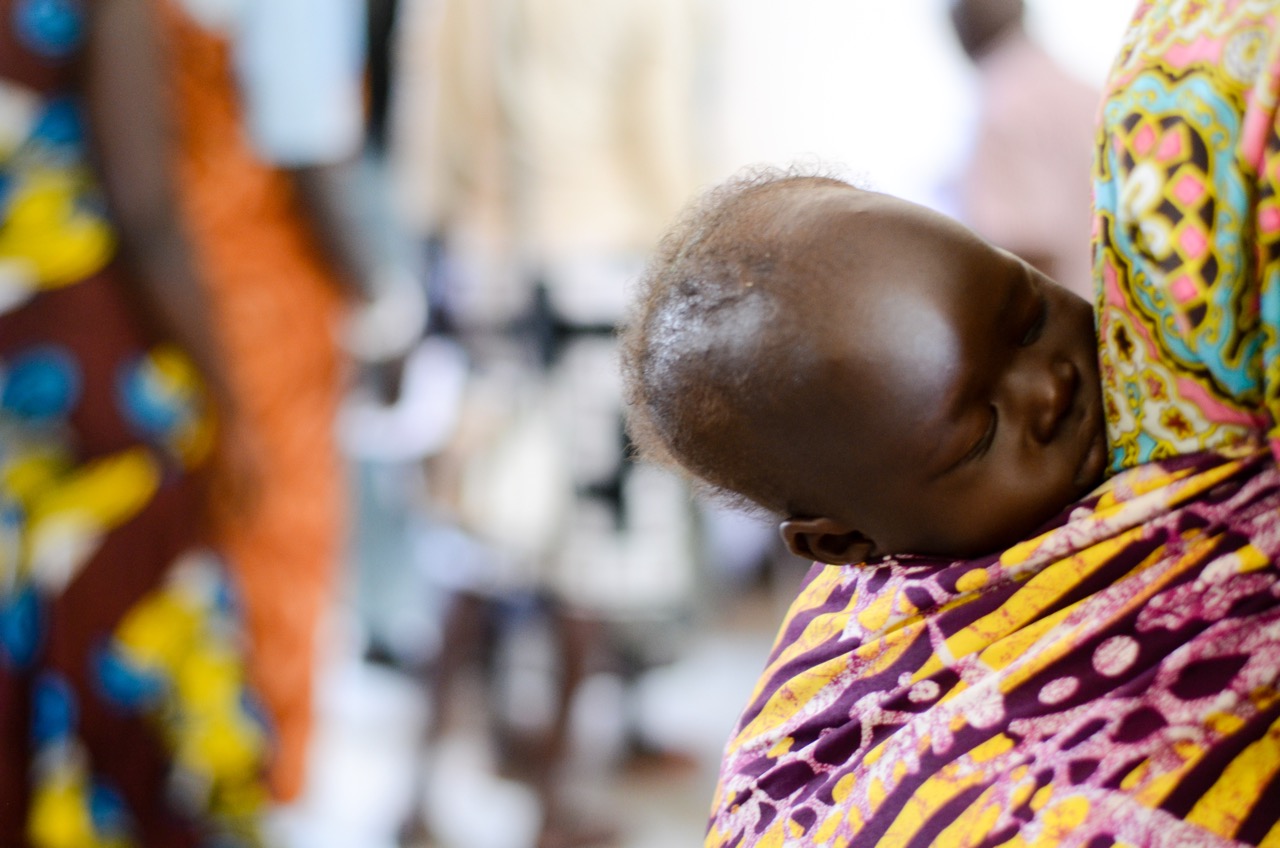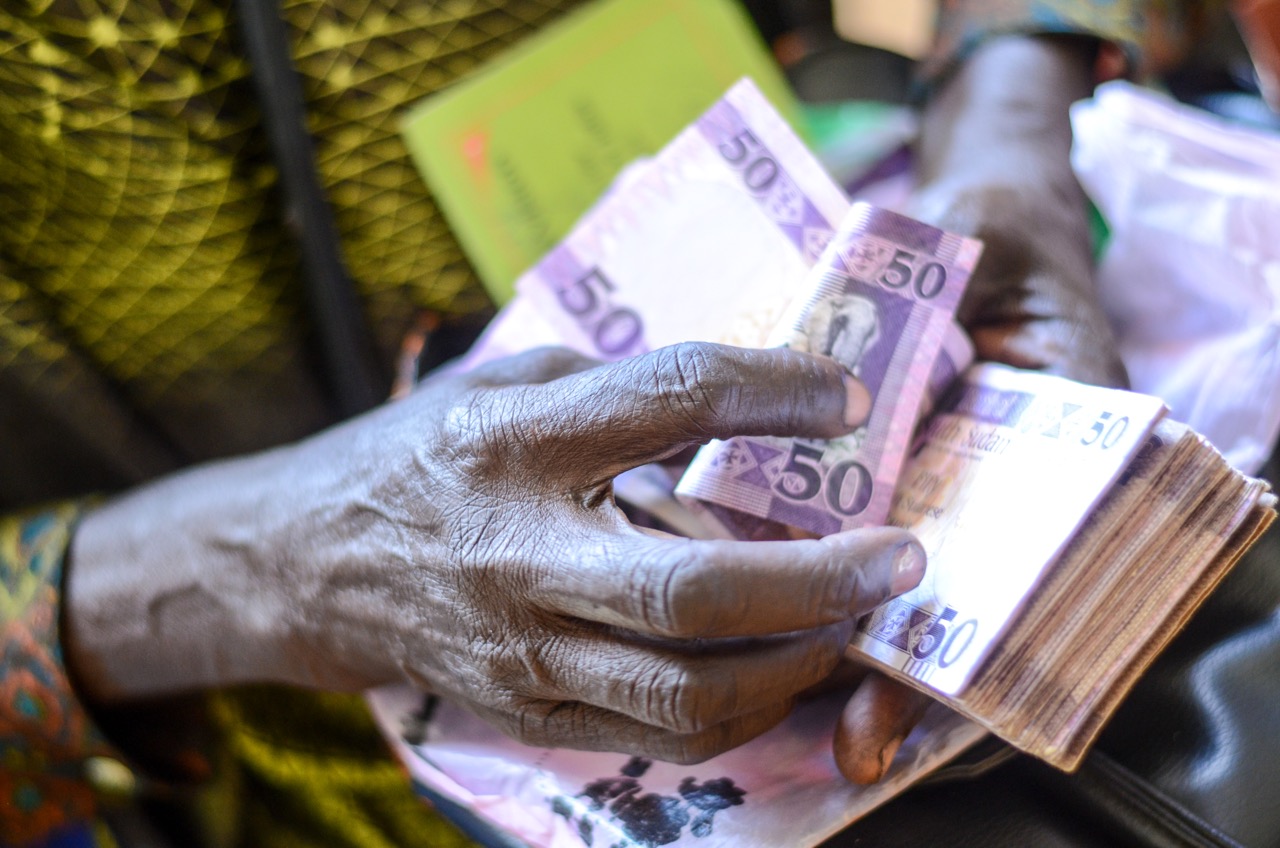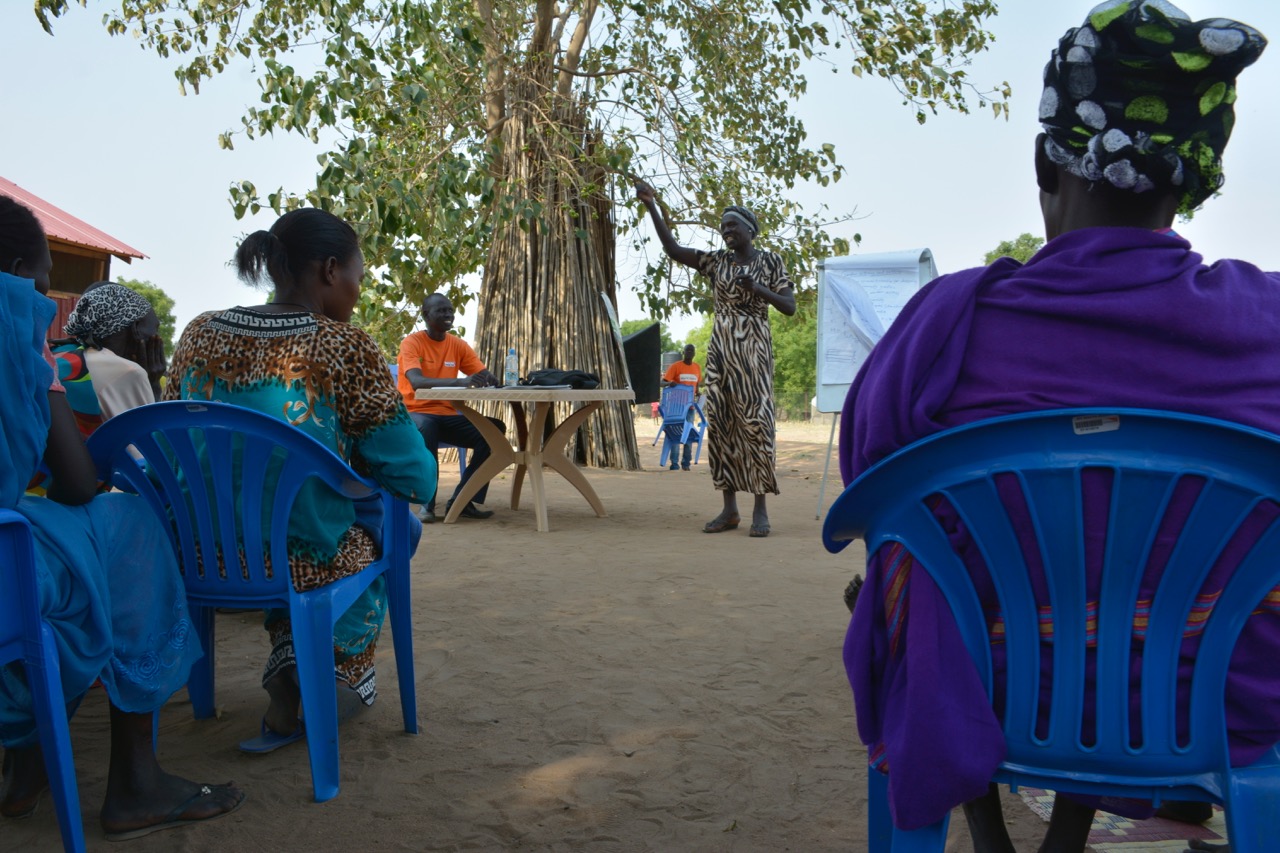Juba’s grandmothers go back to class through cash assistance programme

It’s been about 60 years. That’s how long ago Dina and Colorinda last sat in a class.
But they’re back, pens in hand, notes furiously scribbled in planners. They’re finessing their business skills, learning ways they can enhance their roadside stalls, finding out about market opportunities for their homegrown tomatoes or crocheted bath sponges.
“School has no limit, I’m able to learn new things. I’m old enough to be able to evaluate whether its good or bad and use what’s useful,” says Dina, who tells us she’s somewhere in her 70s.
The grandmothers are doing it for their grandchildren.
“The children with me are still small, I want to do something to improve their lives,” says Colorinda, who takes care of four grandchildren who have been orphaned by the ongoing conflict in South Sudan.
They are among 98,000 people in Juba benefiting from a cash assistance programme that offers training for participants. The programme is funded by the World Food Programme and organized by World Vision.
Each month, the grandmothers attend five days of training and receive a $45 cash grant to use towards their business, towards food for their homes, towards their grandchildren’s educations and towards health care costs.
“To prevent people from starving, we target homes with the most vulnerable and food insecure – families with malnourished children, people with disabilities, malnourished mothers, the chronically ill and the elderly,” explains Simanga Ndebele, the Juba cash programming project manager.
It’s one of the approaches World Vision is using to tackle a hunger crisis that is affecting more than 6 million people in South Sudan.
“The country is experiencing hunger everywhere because people aren’t growing food anymore, and many people have lost their lives. Young children are involved in criminal activities,” Colorinda says.
Conflict in South Sudan has made some areas inaccessible, forcing farmers to abandon their fields, stopping food from reaching markets and drastically inflating the prices of food found in the marketplace.
And worse, the conflict is splintering families. Colorinda’s remaining daughter fled South Sudan for the refugee settlements in Uganda. She’s been left to raise the four children alone relying on the little income she gets from her stall where she sells bags of sugar, juice boxes and bags of charcoal.
“The suffering has increased after the fighting broke out. Everything became hard, no one has money,” Colorinda says.
Dina too talks about loss of children from the ongoing conflict, how there are five grandchildren orphaned. She has had so little money in the last few years that, “Three of my grandchildren are street children because I couldn’t afford to take care of them,” she says softly.
Dina’s two other grandchildren – five-year-old twins – are in and out of school, because she can’t afford the cost of school fees. “They’ve stopped several times now,” Dina says. “The only thing I’m thinking about is the education of the children.”
Through the cash for training activities, Dina and Colorinda have revived hope.
Sessions are led by recent university graduates hired by World Vision who impart knowledge on developing business ideas, varying sources of capital, marketing, business record keeping and small business management.
“We’re not able to heavy work like I used to do when I was farming,” Colorinda says. “Now, we’re given knowledge on how to business better and diversify what we make money from.”
Dina is planning to expand her business by selling homemade crocheted bath sponges.
“I’m happy with this programme, I’m learning things that are useful,” adds Dina. “They told us not to use all our money, to set some aside to be used wisely.”
Both women plan to expand their businesses and to ensure money earned is spent on food and education.
“Every morning I leave for this training, the twins ask me ‘grandma, are you going back to school,’ and I tell them ‘yes’,” Dina concludes with a laugh.


